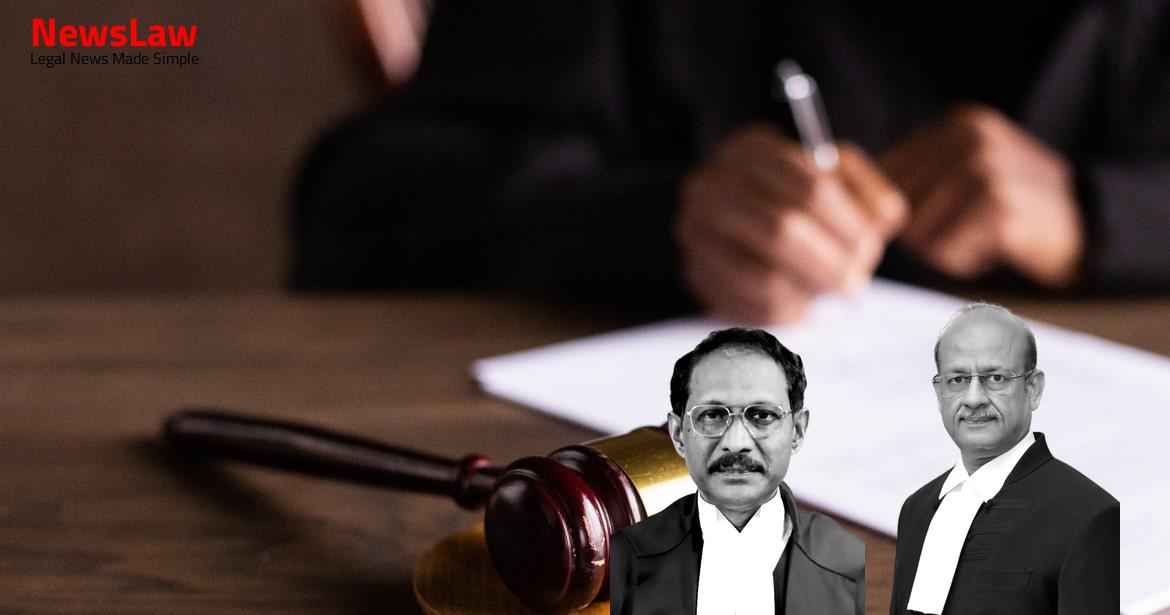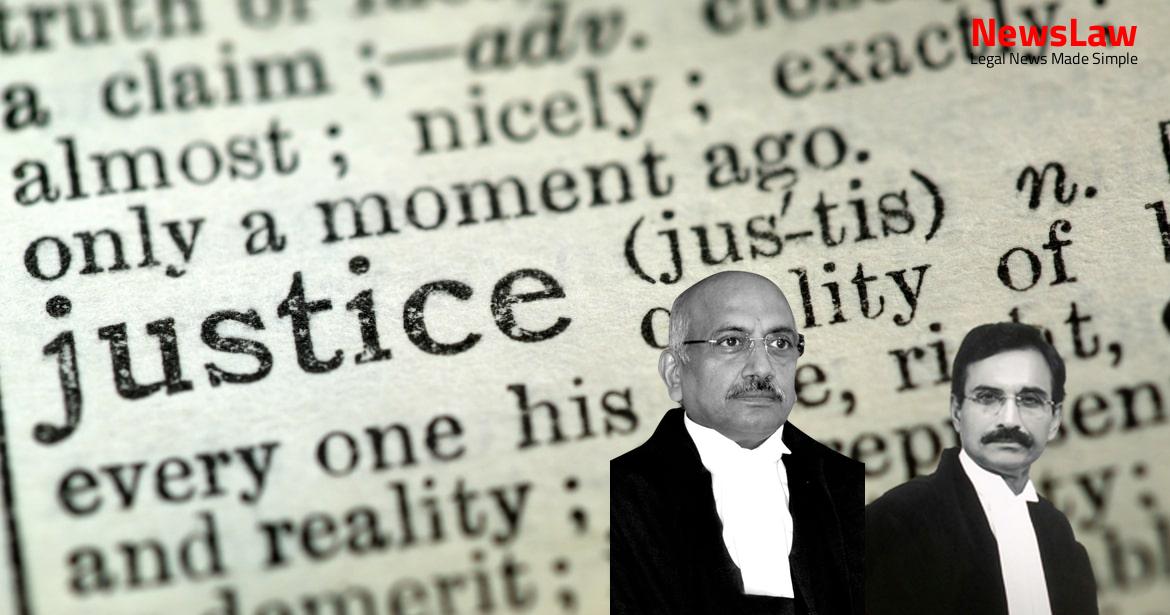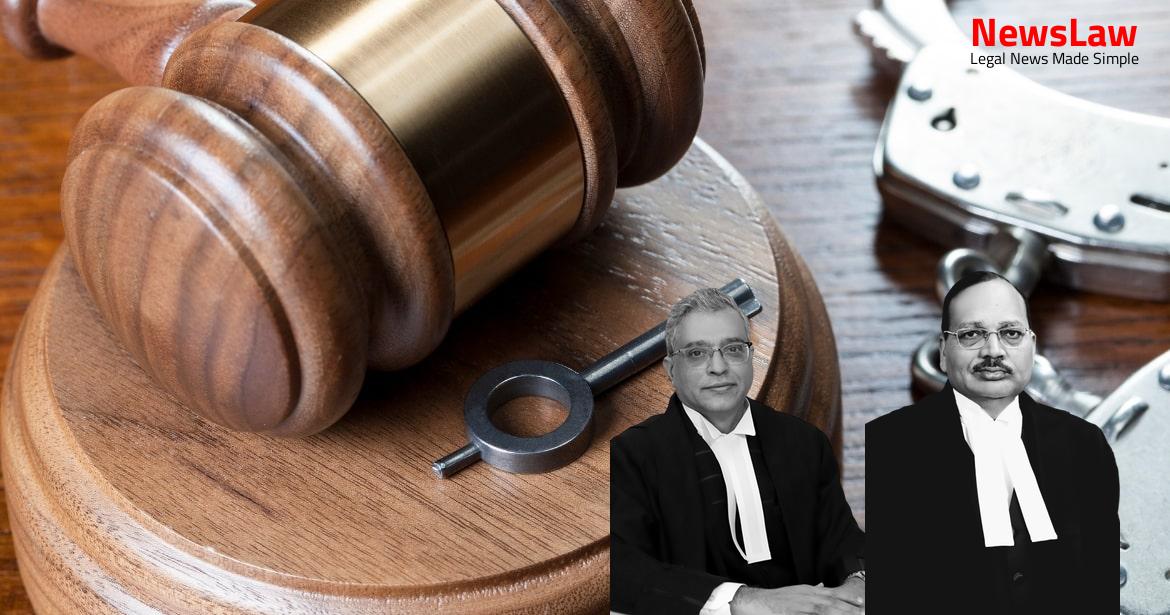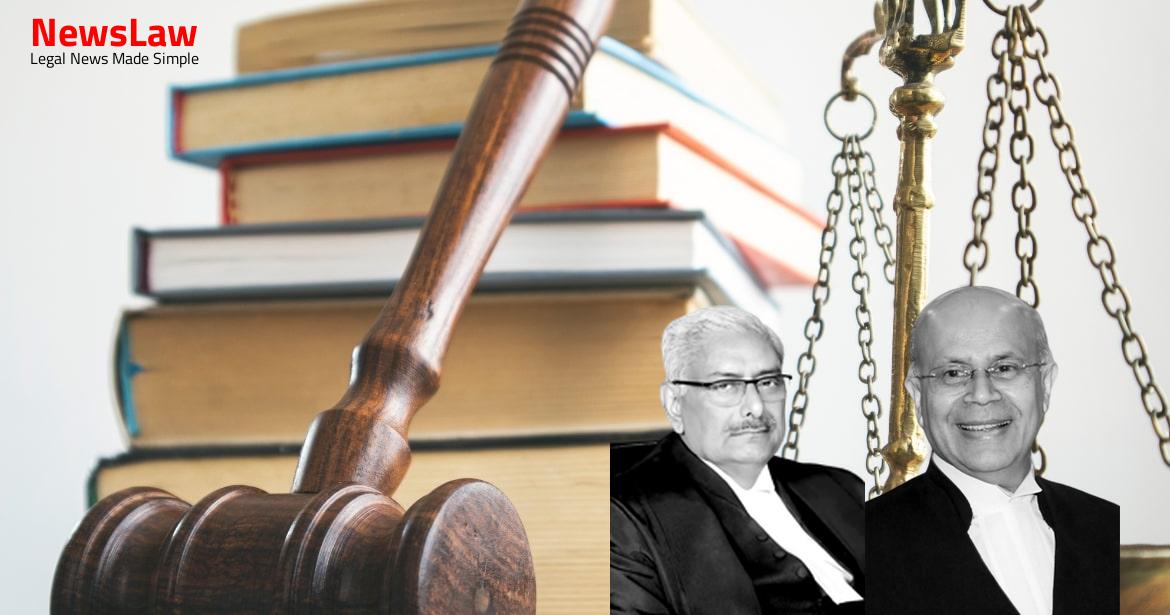In a recent legal case, the court delved into a detailed analysis of land transfer procedures and highlighted the importance of adherence to rules like Rule 266. The court emphasized the necessity of following prescribed procedures in land transactions, ensuring fair practices and legal compliance. Let’s explore the intricacies of this case and the court’s assessment of the violations in land transfer procedures.
Facts
- The Gram Panchayat, Titardi was not impleaded as a necessary party in the suit.
- The respondents-plaintiffs claimed rights based on a lease executed by Gram Panchayat, Titardi in 1959.
- The appellants claimed possession of the land transferred by District Collector in 1989 for urban development.
- The respondents-plaintiffs failed to prove their possession rights.
- No revenue record was produced by respondents-plaintiffs to prove their claim.
- The suit was for permanent injunction but ownership issue was discussed.
- The Trial Court dismissed the suit, but the First Appellate Court granted a decree of permanent injunction.
- The suit was dismissed due to a notice issued under Section 92A of the 1959 Act.
- The right of the Gram Panchayat to lease out the land was questioned.
- The respondents claimed possession based on a lease from Gram Panchayat in 1959.
- High Court relied on its earlier judgment in a different case to dispose of all the appeals.
- The respondents claimed title or possession from the Gram Panchayat, which was not named as a party.
- The High Court upheld the First Appellate Court’s decision in favor of the present appellants.
- Evidence showed land allotment to respondents in 1959 by the Gram Panchayat.
- Patta (lease) granted by Gram Panchayat Titardi was found to be existing.
- Issue No. 4 and 6 were decided against the plaintiffs.
- Plaintiffs were found to be in illegal possession by the Trial Court.
- First Appellate Court reversed Trial Court’s findings and decreed the suit in favor of the respondents.
Also Read: Limitation and Pre-emption Rights in Sale of Urban Immovable Property
Issue
- The Trial Court framed six issues, including whether the land mentioned in the suit belonged to the plaintiff.
- The Trial Court also focused on the need for local inspection by nominated Panchs to assess the impact of the sale on various village facilities and rights of easements.
- The Trial Court highlighted the importance of maintaining beauty and cleanliness of the locality when considering the sale of land.
- The Trial Court emphasized the relevance of additional matters that may arise during the assessment of the sale application.
Also Read: 30-Year Sentence Upheld in Rape Case of 7 Year Old Minor at Temple
Arguments
- The argument raised in the appeal was that the Gram Panchayat had granted patta (lease) to the respondents in violation of Rule 266 of the 1961 Rules.
- Rule 266 stated that panchayat land could only be sold through private negotiation if a reasonable price could not be obtained through auction.
- The contention was that the grant of lease to the respondents did not follow the procedure outlined in Rule 266, as selling through private negotiation was allowed only under specific circumstances.
- Rule 266 of the 1961 Rules allows Panchayat to transfer land through private negotiation under certain conditions.
- The appellants claim that the lease deeds were executed in violation of Rule 266.
- Private negotiation can be opted for if a person has a plausible claim of title and auction may not fetch a reasonable price.
- Reasons for not conducting an auction must be recorded in writing by the Panchayat.
- Auction may be avoided for the advancement of Scheduled Castes, Scheduled Tribes, or other Backward Classes.
Also Read: Suppression of Material Facts and Fraud on the Court
Analysis
- Gram Panchayat from whom the land was taken was not impleaded as a party to admit or deny the allegations made by the respondents/plaintiffs in the plaint.
- The allotments to all the allottees were done on the same day, i.e., 27.08.1985.
- No declaration was sought by the respondent to prove ownership or claim possession of the plot for which she sought injunction.
- Parties were advised to be more careful while filing pleadings to avoid errors.
- It was found that the respondents/plaintiffs failed to prove their right of possession with the required documents.
- Correct copies of Trial Court and First Appellate Court judgments for each case were required to be filed by the appellants, which were missing.
- The procedure for sale of abadi land as per Chapter XIII of the 1961 Rules was not followed.
- The casualness of the appellants was noted, and as a result, the suits were dismissed.
- The Gram Panchayat, Village Kaladwas, was not impleaded as a party.
- The sale of land to respondents/plaintiffs was found to be violative of Rule 266 of the 1961 Rules due to lack of compliance with specific situations.
- The appellants’ appeals were found to have merit based on the reasons provided.
- Details of area leased out to family members on the same date were presented in a table.
- In Civil Appeal No. 8977 of 2012, the original suit was for permanent injunction due to alleged threats of forcible dispossession.
- Rule 266 allows for the transfer of abadi land by private negotiation in specific situations.
- These situations include plausible claims of title, inconvenience of auction, advancement of certain classes, and possession of land for a specified period.
- The transfer can be initiated by a resolution passed by the Panchayat.
- Procedures such as provisional decision, public notice, objection disposal, and auction planning are outlined in related rules.
Decision
- The judgments of the High Court and the First Appellate Court are set aside
- The judgment of the Trial Court is restored
- The appeal is allowed
Case Title: TEHSILDAR,URBAN IMPROVEMENT TRUST AND ANR. Vs. GANGA BAI MENARIYA THR. LRS. (2024 INSC 121)
Case Number: C.A. No.-000722-000722 / 2012



